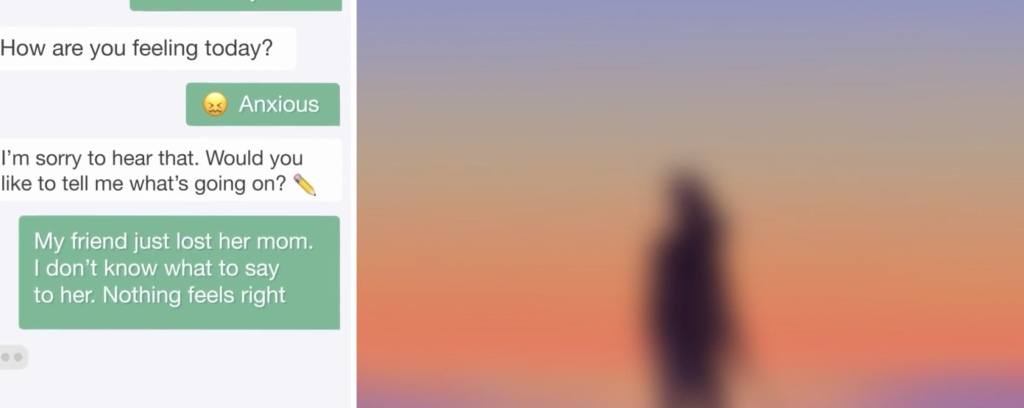To combat the stigma of seeking treatments and mental healthcare, Alison Darcy created Woebot Health, a chatbot dedicated to help youth combat depression and anxiety.
In this April 13, 2022 article for The Guardian, Mark Keierleber discusses the increasing use of chatbots and robot therapists to address the youth mental health crisis. He highlights the benefits of these digital tools, including accessibility and anonymity. Keierleber also raises concerns about the limitations of such technology and the need for human interaction and emotional support in mental health care.
Keierleber suggests that while chatbots and robot therapists can be helpful supplements, they should not replace traditional mental health services for youth.
Editor’s Note: This article pretty much shows how Woebot can be an “easy fix,” and not a long-term solution. Many have shared that the bot has indeed helped them, but it is important to remember that chatbots like Woebot are not sentient, and most of the time can only really be a mechanism to help cope.
This article also does not highlight the privacy issues that sharing private details on the internet can entail, especially since they have admitted to having been involved with third parties like Facebook [read FACEBOOK SUED FOR HARVESTING DATA OF UK USERS, FACEBOOK WILL SUPPRESS “POLITICAL” CONTENT, FACEBOOK PLANS FOR MIND READING DEVICE LEAKED IN AUDIO RECORDING. Also read this article from our sister website, The Agenda Behind The Push To Get Kids Addicted To Technology].
Read Original Article
Read Online
Click the button below if you wish to read the article on the website where it was originally published.
Read Offline
Click the button below if you wish to read the article offline.
